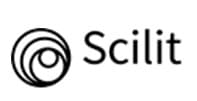The teacher of Architecture: In training or trained
DOI:
https://doi.org/10.5377/arquitectura.v8i15.16270Keywords:
Areas-of-knowledge, architecture, didactics, teacher-training, teachingAbstract
| Institutions of Higher Education - IES, show their concern for the training of their students, which is why strategies are generated for the training exercise of these, valuing them qualitatively through competencies and/or learning results, which are simply the measurement of knowledge, skills, abilities and aptitudes, of what is expected to be the consequence of the academic exercise throughout the university time. These measurements are the ones that the teacher is generally faced with developing on a daily basis inside the classroom and many times outside of it, hence the concern that assails the development of this presentation: Is the architecture teacher really trained pedagogically, to respond to the academic needs of their students?
For this, a presentation will be made on three models of teacher training: "academicist, utilitarian and centered in the classroom", each one of them with its benefits and its mistakes; to arrive at the presentation of a training model for Architecture teachers focused on three essential elements: the method, the methodology and the investigation, of which we want to highlight since many times it is presented that the architecture student does not investigate and with This is to erase that myth.
The text aims to demonstrate how from the experience of teaching and professional practice, together with the strategies of the integrating project, combining the use of the appropriate tools and pedagogical resources, integrated into a good method and a methodology of academic work, respond to teacher training. from the classroom and generate a coherent transmission of knowledge and good teaching-learning of the different areas of knowledge of architecture. Thus, this concern emerges within the framework of the Fourth Industrial Revolution (4RI) and the educational problems present in the 21st century, elucidating methodological strategies that lead to the best pedagogical practices, attending to current and future social needs for architecture students; in such a way that the conclusion can be reached as to whether architecture teachers are in training or are trained.
Downloads
1636
References
Báez, F & González, K. (2021, diciembre). ¿Arquitectura, parte integral de las Ciencias sociales?. Nexo Revista Científica , 34 N° 05 (especial), pp. 75-82. DOI: 10.5377/nexo.v34i05.13111
Ballenilla, F. (1997). Enseñar Investigando. ¿Como formar profesores desde la práctica?. Sevilla: Díada Editora S.L.
Bonilla, H.A., Cabanzo, F., Delgado, T., Hernández, O.A., Niño, A.S. y Salamanca, J. (2019). Investigación-creación en Colombia: la formulación del “nuevo” modelo de medición para la producción intelectual en artes, arquitectura y diseño. Revista KEPES, 16 (20), 673-704. DOI: 10.17151/kepes.2019.16.20.24
Bunge, M. (1972). Teoría y realidad. Ariel. Barcelona.
Castaño, J. E., Bernal, M. E., Cardona, D. A., & Ramírez, I. C. (2005). LA ENSEÑANZA DE LA ARQUITECTURA. UNA MIRADA CRÍTICA. Revista Latinoamericana de Estudios Educativos (Colombia), 1(1), 125-147.
Latorre, C., Vázquez, S., Rodrígez, A., & Liesa, M. (2020). Design Thinking: creatividad y pensamiento crítico en la universidad. Revista Electrónica de Investigación Educativa, 22 (e28), 1-13. https://www.scielo.org.mx/pdf/redie/v22/1607-4041-redie-22-e28.pdf
Minciencia. (2021). Modelo de Medición de Grupos de Investigación, Desarrollo Tecnológico o de Innovación y de Reconocimiento de Investigadores del Sistema Nacional de Ciencia, Tecnología e Innovación, Año 2021, Año 2021 – Convocatoria 894 de 2021. https://www.colciencias.gov.co/sistemas-informacion/modelo-medicion-grupos
Mendoza, C. (diciembre 7 de 2018). Educación superior en la cuarta revolución industrial. https://observatorio.tec.mx/edu-bits-blog/educacion-superior-en-la-cuarta-revolucion-industrial
Mollá, J. (1994). Modelo didáctivo de investigación para la educación artística. Arte, individuo y Sociedad, 6, 77-85. https://revistas.ucm.es/index.php/ARIS/article/download/ARIS9494110077A/6017/
Pérez, R., Mena, E., & Elicerio, D.. (2 de abril 2020). El nuevo enfoque de participación docente ante los retos y desafíos tecnológicos de la cuarta revolución industrial 1. Revista Espacios, Vol 41 (N°11) , p.24.
Porlan, R. & García, J.E. (1990) Cambio escolar y desarrollo profesional: un enfoque basado en la investigación en la escuela. Investigación en la Escuela, N°11, pp 25-37.
Rivera, J. (2010). Herramientas de Gestión educativa. Bogotá: Magisterio.
Downloads
Published
How to Cite
Issue
Section
License
Copyright (c) 2023 Universidad Nacional de Ingeniería

This work is licensed under a Creative Commons Attribution-NonCommercial-NoDerivatives 4.0 International License.



















